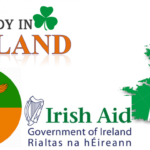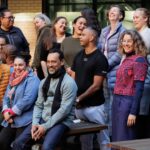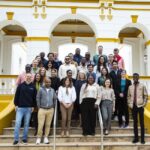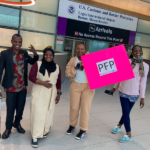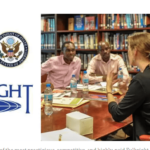Getty Pre and Postdoctoral Fully Funded Fellowships 2026–2027: Research Opportunity in the Arts and Humanities.
Do you have a strong interest in art history, conservation, or the humanities and are a graduate student or recent PhD recipient? Scholars from all around the world have the opportunity to pursue advanced study at the Getty Center in Los Angeles through the prestigious and fully supported Getty Pre- and Postdoctoral Fellowships 2026–2027.
These fellowships, which are sponsored by the Getty Foundation, encourage creative thinkers who are dedicated to advancing knowledge of visual culture, both historical and contemporary. This fellowship offers the ideal setting for collaboration, exploration, and publication of your discoveries in a vibrant academic setting, regardless of whether you are nearing the end of your dissertation or looking to advance your postdoctoral research.
Click here to get started
Getty Pre and Postdoctoral Fully Funded Fellowships 2026–2027
For the 2026–2027 academic year, the Getty Foundation is currently taking applications for its esteemed Pre- and Postdoctoral Fellowships. These grants encourage up-and-coming academics to conduct studies related to the annual thematic theme of the Getty Scholars Program. Fellows can complete dissertations, advance ongoing studies, or broaden their doctoral research for publication during their stay.
The African American Art History Initiative (AAAHI), a unique Getty award intended for academics researching African American art and its wider cultural settings, is another avenue for applicants to submit applications. All chosen fellows participate in the lively intellectual community of the Getty Research Institute (GRI), attend weekly public lectures, and have complete access to the institute’s collections. While postdoctoral fellows have the option of living at the Getty Center or the Getty Villa, predoctoral recipients will be stationed at the Getty Center.
Details of the Fellowship for 2026–2027
- Nine months of residency, from late September until late June
- Locations: Getty Center for predoctoral fellows; Getty Center or Getty Villa for postdoctoral fellows
- Predoctoral fellows receive $30,000 in stipends, while postdoctoral fellows receive $35,000.
- Travel reimbursement, residence at Getty Scholar housing, a dedicated workspace at the Getty Research Institute or Villa, and access to a health plan are examples of further support.
Note: These conditions could change in subsequent cycles and are based on regulations from July 2024.
Qualifications for Eligibility
- Predoctoral Fellowship: Candidates must demonstrate their intention to finish their dissertations during the residency time and have attained candidacy status in their doctoral programs by the application deadline.
- Postdoctoral Fellowship: This award is available to candidates who completed their doctoral studies between September 1, 2021, and the present.
- Getty Scholar Grant: Applicants should apply at the Getty Center or Getty Villa under this category if they earned their doctorate prior to September 1, 2021.
- Policy for Reapplication: After six years, former Getty residential grant recipients are free to reapply for any fellowship category they are eligible for and want to pursue.
Criteria for Selection
Proposals are assessed by the selection committee according to:
- In keeping with the yearly topic of the Getty Scholars Program
- Potential effects of the project on the candidate’s field of study
- Academic achievement and prior achievements
- credentials and preparedness of the candidate to finish the proposed study.
In conclusion
More than just financial assistance, the Getty Pre- and Postdoctoral Fellowships serve as a springboard for influential research, international cooperation, and scholarly development. Fellows depart the Getty with enhanced research and enduring professional networks thanks to access to top-notch resources, knowledgeable supervision, and a thriving academic community.
Apply now for the 2026–2027 cycle if you’re prepared to advance your academic career and add to the larger discussion in the arts and humanities.

